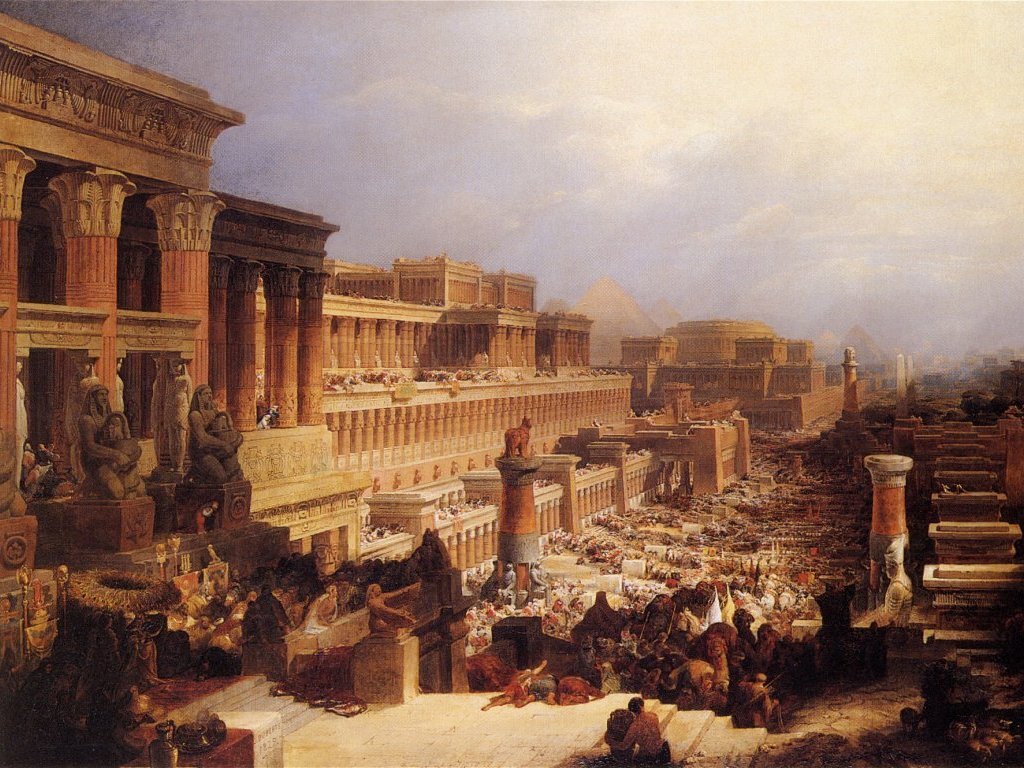
Editor’s note: This post originally appeared on davidwilber.me. Tabernacle of David considers this ministry trustworthy and Biblically sound.

Author: David Wilber
Did Jesus exist before he was conceived in Mary’s womb? Unitarians say no. “You cannot be before you are,” scoffs Anthony Buzzard, who calls the doctrine of Messiah’s preexistence “baffling” and “impossible.”[1]
However, we shouldn’t base our beliefs about this concept on whether or not Anthony Buzzard can wrap his mind around it. The primary question should be, “Do the Scriptures teach that the Messiah existed as a pre-incarnate person?” We must determine what the Scriptures say and then conform our minds to the word of God. Who are we to declare something “impossible” if the Scriptures teach it? For instance, atheists say that water turning into wine is impossible, but Scripture says that it happened. As Christians, shouldn’t we let Scripture be the final authority on what God can do?
In any case, as I’ve demonstrated in another article, numerous passages testify that the Messiah indeed preexisted. In fact, contrary to both Unitarianism and Arianism, Scripture teaches that the Messiah is uncreated, an attribute peculiar to God alone. The Messiah is God and existed in the beginning with God, long before he eventually look on flesh as a human (John 1:1-3, 14, 17). So yes, Jesus existed before he was conceived in Mary’s womb.
In this article, however, I want to focus on a particular passage that is often overlooked when it comes to the question of Messiah’s preexistence. That passage is Jude 5, which identifies Jesus as the one who saved Israel out of Egypt and destroyed the unbelievers in the wilderness:
Now I want to remind you, although you once fully knew it, that Jesus, who saved a people out of the land of Egypt, afterward destroyed those who did not believe. (Jude 5, ESV)
Regardless of whether or not the person we call Jesus was known by that name during the Exodus, Jude 5 nevertheless indicates that this person existed at that time. Therefore, according to Jude, the person we know as Jesus preexisted his conception in his mother’s womb.
Some might point out that other translations have “the Lord” instead of “Jesus” in Jude 5. For instance, the NIV reads, “I want to remind you that the Lord at one time delivered his people out of Egypt, but later destroyed those who did not believe.” This translational difference is based on a textual variant in the available manuscripts. I’ll talk about that in a minute, but first, even if “the Lord” is the correct reading, the context reveals that this “Lord” of verse 5 is the same person that Jude calls “our only Master and Lord, Jesus Christ” in verse 4. In fact, every other time that Jude uses the word “Lord” (kyrios) in his letter, with one possible exception, it’s in reference to Jesus (4, 9, 14, 17, 21, 25). Thus, “the Lord” that saved Israel out of Egypt is Jesus.
However, for good measure, let’s talk about what the original passage in Jude 5 actually said. Was it “Jesus” or “the Lord” who saved Israel out of Egypt? Scholars Robert Bowman and Ed Komoszewski favor “Jesus.” They say, “Many of the earliest manuscripts actually say ‘Jesus’ instead of ‘the Lord’ in verse 5, and this is most likely the original reading.”[2] Bowman and Komoszewski explain three principles of textual criticism that support this conclusion.
First, “All other things being equal, the earlier and more widely attested reading is to be preferred.” As Bowman and Komoszewski go on to explain, while “both ‘Lord’ and ‘Jesus’ are among the earliest readings…‘Jesus’ is more widely attested.” Additionally, the reading “Jesus” has “much greater support from the early translations of the New Testament into other languages (such as Coptic, Ethiopic, and Latin) and better support from the early church’s leading biblical scholars, including Jerome (early fifth century) and possibly the third-century Origen.”[3] This external evidence strongly supports the “Jesus” reading.
Second, in textual criticism, the harder reading is more likely to be original since, as Bowman and Komoszewski explain, “a scribe is more likely to change a text from something that sounds strange to something that doesn’t, rather than the other way around.”[4] Again, in this case, “Jesus” is preferred over “Lord.”
Third, “whatever reading is more likely to have given rise to the others as alterations is probably the original reading.” When considering this principle, Bowman and Komoszewski once again argue that “Jesus” is probably original “because it is more likely that scribes would change ‘Jesus’ (the admittedly harder reading) to ‘Lord’…but not vice versa.”[5]
Thus, according to the principles of textual criticism, the evidence indicates that Jude 5 originally identified Jesus explicitly as the one who saved Israel out of Egypt. But even if Jude 5 originally said “the Lord,” again, the context reveals that this Lord in verse 5 is the same Lord from verse 4, Jesus. Of course, this means that Jesus was around during the Exodus. In other words, he existed before he was conceived in Mary’s womb.
Now, I know what some of you might be thinking. “Wait a second! YHWH says that he was the one who saved Israel out of Egypt in Leviticus 11:45! Does this mean that Jude 5 contradicts the Old Testament?!”
The Old Testament does indeed say that YHWH, the God of Israel, was the one who saved Israel out of Egypt. However, before you start ripping Jude out of your Bible, consider the fact that the Old Testament itself makes seemingly contradictory claims in this regard. While Leviticus 11:45 and other passages say YHWH saved Israel out of Egypt, Judges 2:1 says “the Angel of YHWH” was the one who saved Israel out of Egypt.
So, according to the Old Testament, who saved Israel out of Egypt—YHWH or the Angel of YHWH? The answer is yes. In other words, YHWH and the Angel of YHWH are interchangeable from the Old Testament’s perspective. Both are members of the one being who is God. One of those members, the Angel of YHWH, took on flesh and was born as the man Jesus. Jude identifies Jesus as the Angel of YHWH, who was YHWH (cf. John 1:1). That’s why Jude can say that Jesus was the one who saved Israel out of Egypt.
[1] Anthony Buzzard, Jesus Was Not a Trinitarian: A Call to Return to the Creed of Jesus (Marrow, GA: Restoration Fellowship, 2007), 216-217
[2] Robert M. Bowman Jr. and J. Ed Komoszewski, Putting Jesus in His Place: The Case for the Deity of Christ (Grand Rapids, MI: Kregel, 2007), p. 98
[3] Ibid.
[4] Ibid., 99
[5] Ibid.
About David Wilber

David is first and foremost a passionate follower of Yeshua the Messiah. He is also a writer, speaker, and teacher.
David’s heart is to minister to God’s people by helping them rediscover the validity and blessing of God’s Torah and help prepare them to give an answer to anyone who asks about the hope within them (1 Peter 3:15)…

